
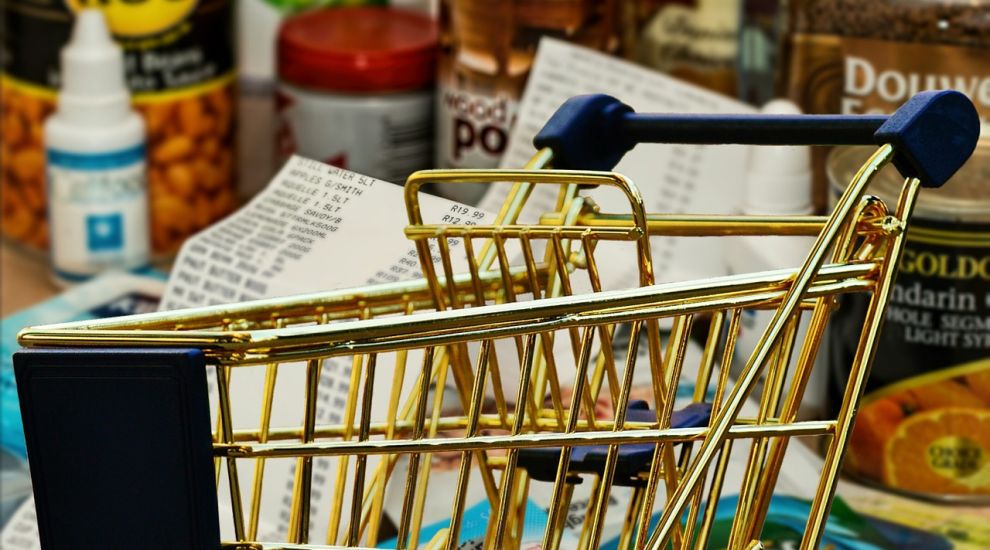

It's a well-known fact that food and drink in Jersey is more expensive than the UK, but by how much? And why is there such a difference?
A new report by the Jersey Competition and Regulatory Authority has shed some light on this, revealing that the average shopping basket will cost 12% more in a Jersey store than it would from the same retailer in the UK due to high freight and labour costs.
And, when compared to the cheapest UK supermarkets, Islanders are also paying as much as a third more.
Published yesterday, the JCRA's Groceries Market Study also found that Islanders were spending an average of £112 per week on groceries.
However, it concluded that competition among the island's supermarkets was working.
Grocery retailers were not making excessive profits and consumers were shopping around, according to the JCRA, while no retailer had more than a 40% share of the market.
Inflation has hit its highest rate (12.7%) in Jersey for 30 years, with increasing food prices driving this by 14.2% in the year to December 2022, impacting households' budgets.
9% of a household's total weekly spend is on groceries, going up to 15% for low-income households.
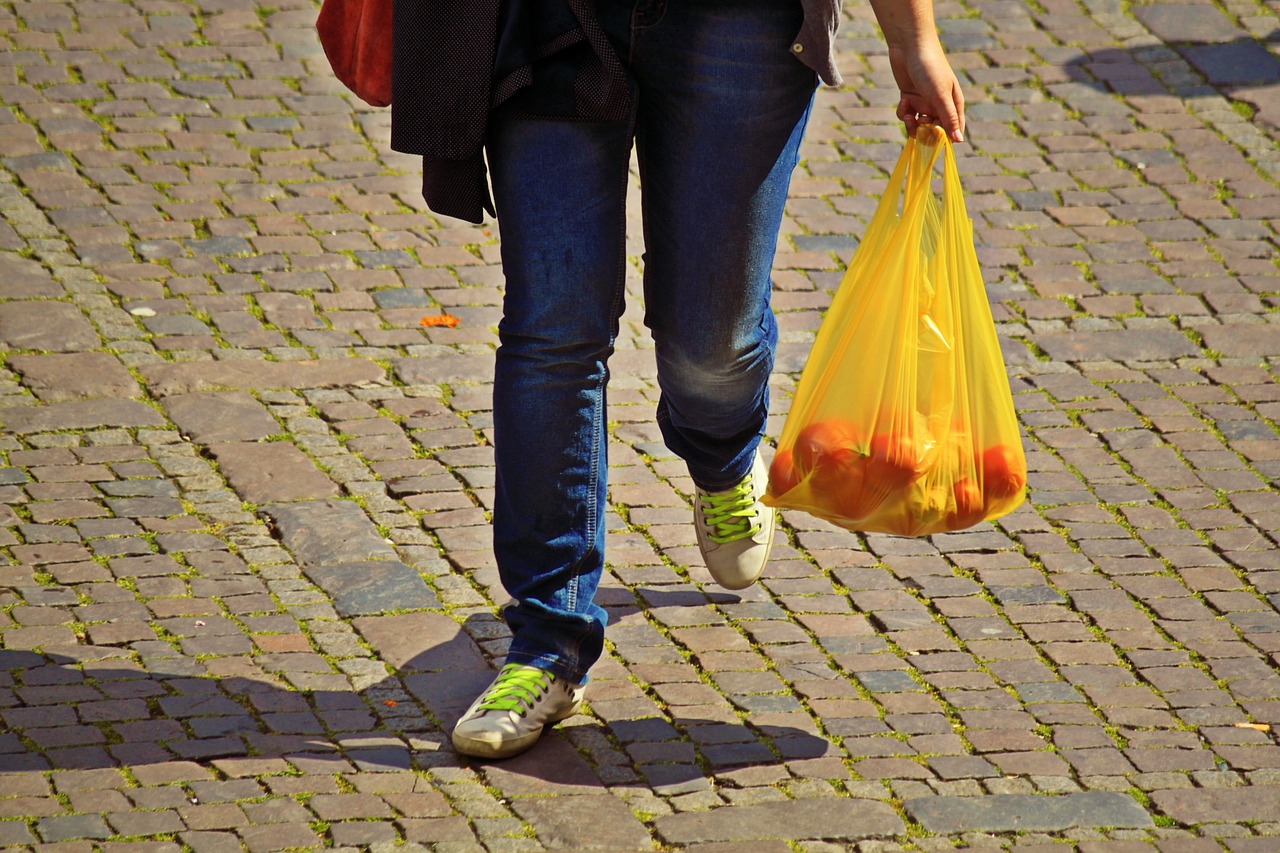
Pictured: Nearly half of those looking for value for money were unsatisfied with their in-person grocery shopping experience.
The majority of consumers surveyed said they either felt neutral about (27%) or satisfied with (34%) the grocery shopping experience in Jersey.
However, around two in five respondents said they were unsatisfied with the in-person grocery shopping experience in Jersey. Levels of dissatisfaction were higher (48%) among those who described their attitude towards in-person grocery shopping as: "I need to stick to a budget and value for money is most important."
This lack of satisfaction was, in part, driven by comparisons with the UK, which consumers felt offered better value and better quality than Jersey.
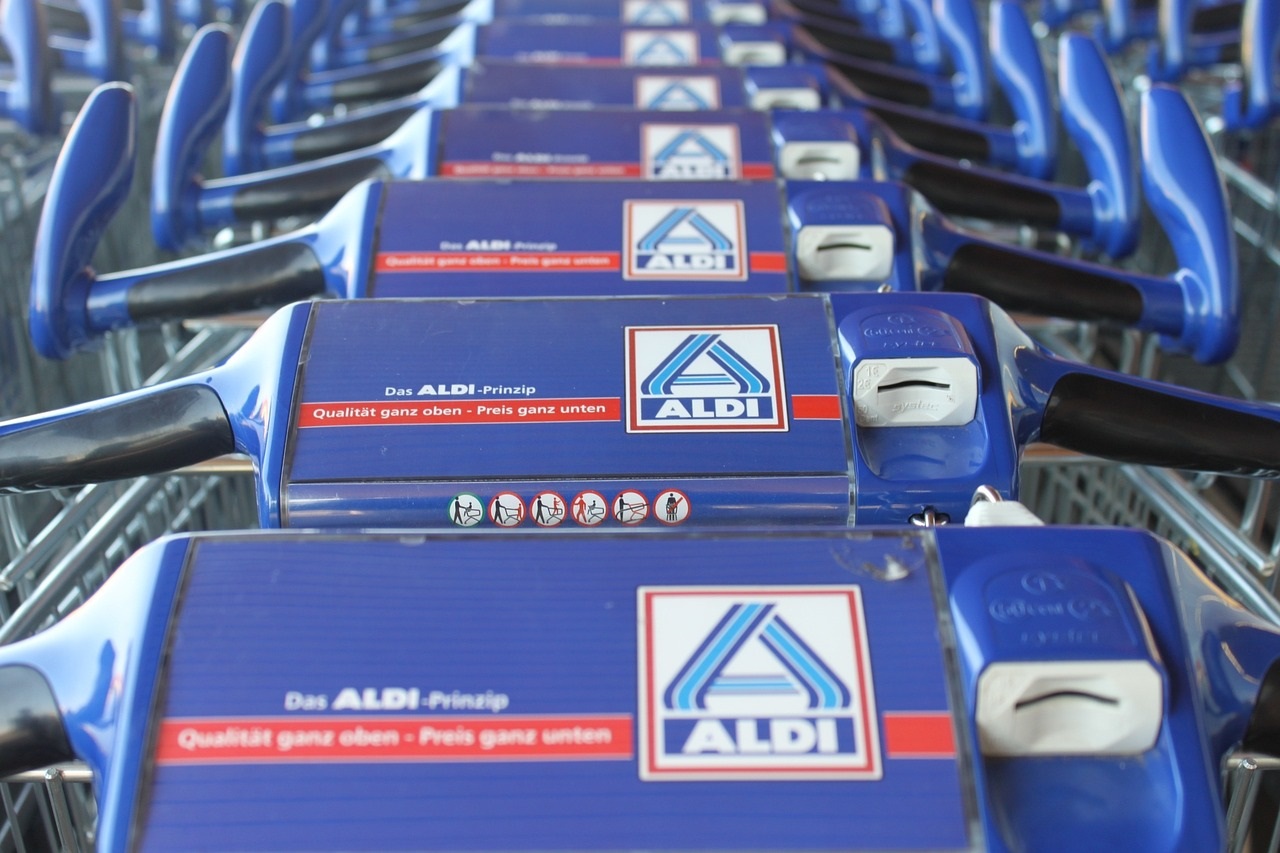
Pictured: 8% of consumers surveyed explicitly said a discounter such as Aldi or Lidl would improve their shopping experience.
Jersey Consumer Council Chair Carl Walker said "budget shops", such as an Aldi or Lidl, "would certainly shake things up".
Mr Walker added: "A discounter would be welcomed and very popular. I'm sure there are ways the government could assist, encourage or simplify the process for one of these to move to Jersey.
"But you have to be mindful of existing supermarkets and their employees. It's a fine balance."
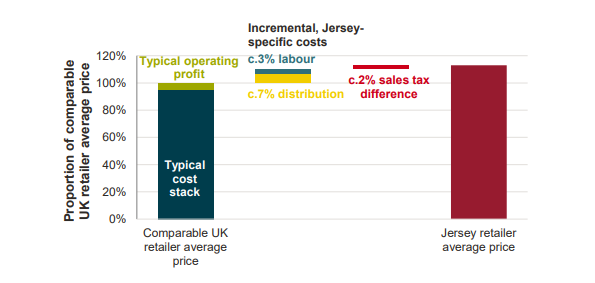
Pictured: a breakdown of the incremental costs that make Jersey's groceries more expensive.
The JCRA found that discrepancies in price between Jersey and the UK stemmed from higher operating costs in the island, primarily driven by freight and labour, rather than a lack of competition.
It costs approximately 10% more for grocery retailers to operate in Jersey, which can be broken down into:
These factors heap costs on retailers that were ultimately passed onto consumers.
The report stated: "Jersey grocery retailers are not making 'excess' profits, which means they will have had little choice but to pass on the considerable inflation in wholesale costs to consumers."
The reason a shopping basket costs 12% more for Jersey shoppers than UK ones is due to the 2% sales tax difference.
GST – a 5% sales tax – contributed to the price difference between UK and Jersey supermarkets, as most groceries in the UK – unless they are classed as junk food – in the UK are exempt from the 20% VAT.
In November 2022, a proposition from Deputy Raluca Kovacs to remove GST from food was rejected by the States Assembly.

Pictured: the report's recommendations to lower costs to consumers.
The JCRA's report makes three recommendations.
The first recommendation is to improve price transparency by investing in the Jersey Consumer Council's price comparison service, to encourage greater price-based competition.
Mr Walker said: "While it is more expensive to operate here, there is still sufficient competition although there is a lack of the very low-cost supermarkets."
He added that shopping around was "key" to driving savings, saying: "It's important to look at people's shopping habits, moving away from that one big shop."
The second recommendation is to minimise entry barriers, such as planning restrictions, and "promote Jersey as a test-bed for innovation".
The report also found that there were "inherent barriers to entering a small, island market", that most store sites were occupied and that there were logistical challenges to supplying an island market.
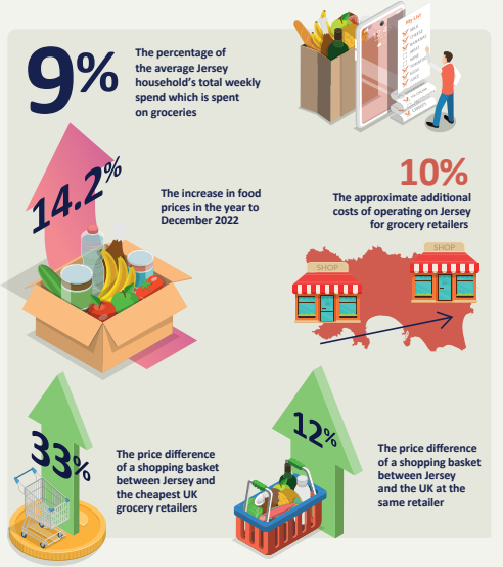
Pictured: The overall breakdown.
The third recommendation is to reduce freight and labour cost by following up the 2021 market study into freight logistics.
Stakeholders now have the opportunity to comment and provide further input to the study before it is finalised in autumn 2023.
Comments
Comments on this story express the views of the commentator only, not Bailiwick Publishing. We are unable to guarantee the accuracy of any of those comments.